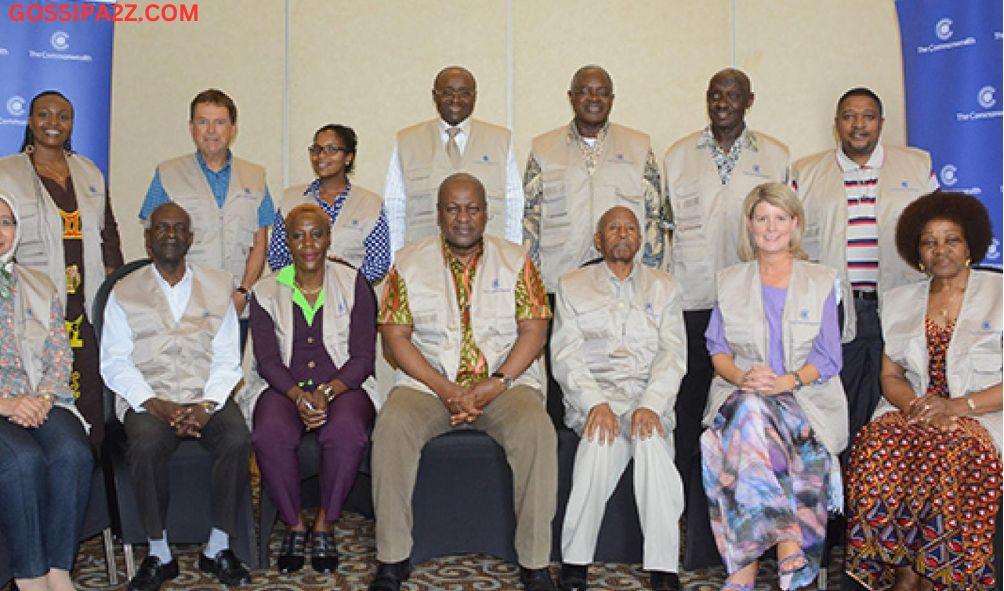Commonwealth Observer Group: Ban Corrupt Candidates from Future Kenyan Elections
The Observer Group from the Commonwealth for the Kenyan General Election of the previous year recommends that individuals found guilty of corruption, electoral misconduct, or unethical behavior should be prevented from taking part in upcoming elections.
The organization, in a document discussing Kenya’s elections, has additionally urged for the swift resolution of appeals involving candidates, to avoid disrupting the process of preparing for the election.
“The conviction of any candidate for corruption, electoral malpractice or unethical conduct contrary to national values should lead to automatic disqualification of such a candidate as per the law. To satisfy the public interest in certainty, any conviction at the time an election is called should preclude a person from standing in that election,” reads the report.
Leading up to the elections on August 09, 2022, there were delays in resolving appeal cases for certain candidates, like former Nairobi Governor Mike Sonko. The electoral commission expressed frustration that these delays were impacting their schedule for preparing ballot papers.
The committee ultimately prevented Sonko from competing for the position of Mombasa governor after he was removed from office as the Nairobi governor through a Senate impeachment process.
Poll financing
The Commonwealth group has urged for the enactment of the Elections Campaign Financing Act during the upcoming 2027 general elections to place a cap on the funds utilized by candidates.
“Although there is campaign finance legislation, the Campaign Finance Act is not in force and there are no regulations that cap the amount that any coalition, political party, or candidate can spend on the campaign. This leads to significant and often unreported campaign spending,” reads the report.
ALSO READ: Kenya 2022 Election: CommonWealth Observer Group’s Final Report
The organization has advised the commission about its spending, particularly concerning elections. They recommend that the commission should analyze election expenses in similar countries to discover potential ways to reduce costs for upcoming elections.
While the team under the leadership of ex-Prime Minister Bruce Golding from Jamaica acknowledged the election’s credibility, transparency, inclusiveness, and overall peaceful nature, they expressed worries about various matters. These concerns encompassed delays in the allocation of funds to the Independent Electoral and Boundaries Commission (IEBC), the absence of voter register publication for scrutiny, and mistakes found in the ballot printing process.
“The group’s overall assessment was that the election, as a whole, was credible, transparent, and inclusive. However, all electoral processes can be further strengthened,” reads the report.
Kenya’s Ethics and Anti-Corruption Commission has requested the disqualification of 241 candidates from contesting in the elections due to concerns about their integrity. Nonetheless, a significant portion of these individuals have been approved by the electoral commission.
Before the August elections, members of the Kenyan Parliament declined the Election Campaign Financing Regulations released by the electoral commission. They stated that the commission had not submitted the regulations to the parliament for approval before making them public.
The rules mandated the declaration of funding sources and established limits on expenditures. These measures were perceived as an effort by the commission to create fairness, preventing candidates with significant financial resources from gaining an unfair edge over their rivals.
According to Section 5 of the Election Campaign Financing Act of 2013, IEBC is obligated to formulate regulations. These regulations need to be presented to the Parliament for endorsement, and this should be done no later than a year before the General Election.
ALSO READ: Kenya’s Amina Mohamed To Head Commonwealth Observers for Zimbabwe
The rules that were invalidated had imposed specific spending caps on candidates running for governor, women representative, and senator positions. The spending limits ranged from Ksh21.9 million ($15,000) to Ksh117.3 million ($70,000), depending on the population and dimensions of the decentralized regions.
The report’s team also urged the IEBC to reassess its ballot printing process’s chain of custody protocols to prevent the kinds of mistakes that caused election delays in certain regions like Kakamega and Mombasa.
“The IEBC should also ensure the voter register is published for an adequate amount of time in advance of the election to allow for inspection and objections,” reads the report.
To ensure proper preparation for elections, the IEBC is requesting early disbursement of funds from the exchequer. This will enable the commission to fulfill its responsibilities within the designated timeframes.
The Group was deployed in 14 teams from August 7-9 to Nairobi (including Kiambu), Central (Nyeri, Kitui, and Meru), Coast (Mombasa), Northeastern (Machakos), Nyanza (Kisumu, Kisii), Rift Valley (Nakuru, Eldoret, Kitale and West Pokot) and Western Region (Kakamega, Vihiga, Bungoma and Busia).
Commonwealth Observer Group: Ban Corrupt Candidates from Future Kenyan Elections
